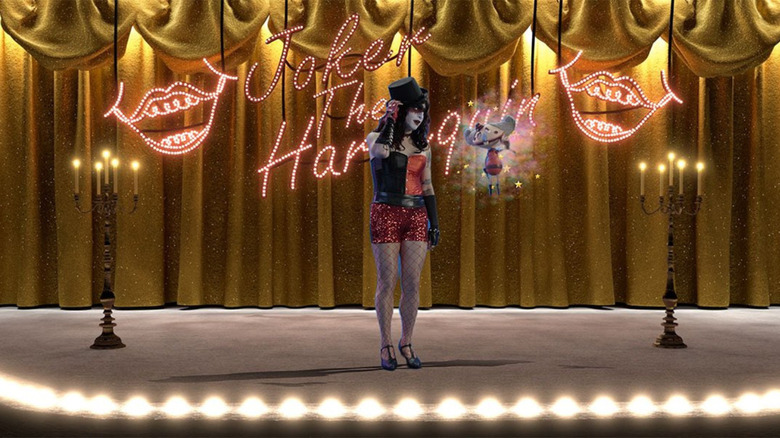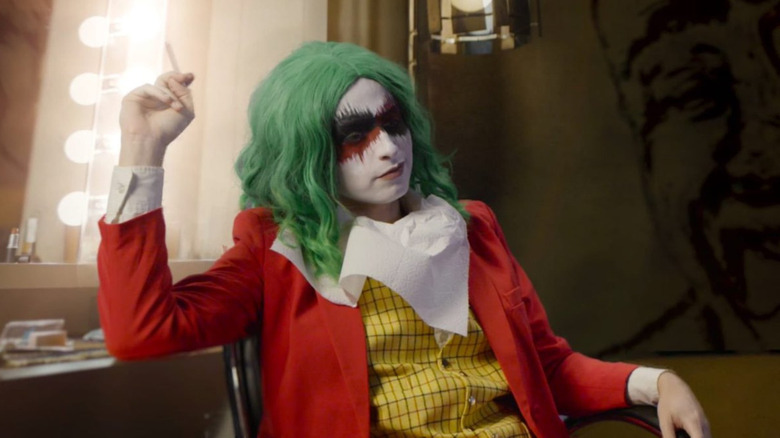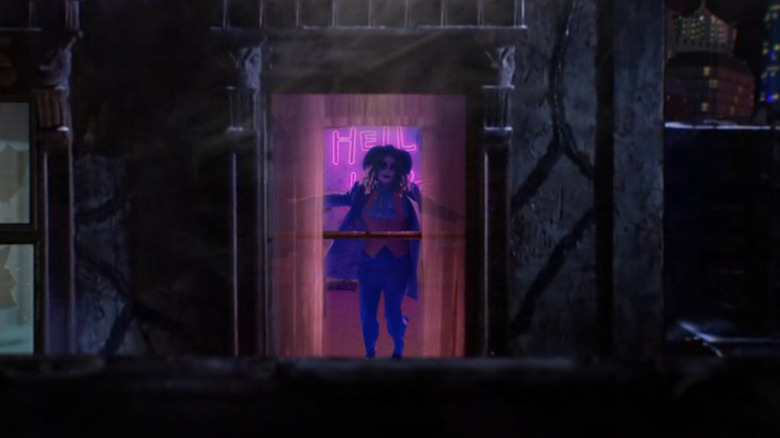The People's Joker, The Queer Batman Parody Pulled Last-Minute From TIFF, Deserves To Be Seen [TIFF]
I must make this extremely clear; this piece on Vera Drew's feature directorial debut "The People's Joker" is not a review. I have to make this distinction because, after it held its world premiere in the early morning hours of September 14 at the Toronto International Film Festival, all other planned screenings of the film were canceled. When you go to TIFF's official page for the film, you will find this message in lieu of programmer Peter Kuplowsky's introductory notes:
"The filmmaker has withdrawn this film due to rights issues. We apologize for any inconvenience. Current ticket holders will receive an email from TIFF Customer Relations with information on their purchase."
In theory, this makes sense. "The People's Joker" utilizes several characters from DC Comics in an unauthorized manner, with Drew starring as the titular Joker struggling with her comedy career and her gender identity. Batman, credited in the film as Batsy, is depicted as a fascistic groomer, while Ra's al Ghul has become a celebrated clown and comedian in Gotham City. It twists these classic characters into something nearly unrecognizable, but in a way that makes it clear that Drew loves the source material.
However, it appears this love could only do so much. I cannot confirm or deny that legal action by DC Comics owner Warner Bros. Discovery was taken against "The People's Joker," but given the sudden cancelation of its screenings under a vague explanation of rights issues, it's hard not to speculate.
A brief explanation of fair use
If you find the exact legal jargon of the U.S. Copyright Act of 1976 to be a bit of a slog to get through, allow us to explain it as simply as we can. The fair use doctrine was written into the act to protect some instances of the use of copyrighted material by those who don't own said copyrights or trademarks. Media that uses these materials are protected under fair use if the work is of a noncommercial or critical nature, adheres to the original copyright's limits of creative expression, has an independently original story, and doesn't harm the original material's reputation in the free market.
According to a warning placed ahead of "The People's Joker," the film's legal counsel reviewed the act and determined that it adheres to all four of these tenets of fair use. This is especially true given the film's gonzo retelling of Drew's coming out and transition, which was achieved with the help of over one hundred actors and artists from around the world. If we are following the fair use doctrine in its most literal sense, then it makes little sense as to how "The People's Joker" is currently in the midst of legal problems. Then again, it is Warner Bros. Discovery that they are dealing with here, and they likely want to protect the sanctity of their brands and IPs even more amidst several recent controversies.
The daughters of the Jokers you couldn't burn
Despite this, the fact that "The People's Joker" even exists in a complete state feels akin to a miracle. In our current landscape of superhero movies that bank on mainstream audiences' desire for familiarity, the film manipulates that to question why this familiarity is so essential in the first place. If these icons, such as the Joker and Batman, are so important in popular culture, then why shouldn't they be used to tell a story about how culture shapes people into embracing their true selves? Why shouldn't audiences be challenged when watching movies or consuming other forms of art?
"The People's Joker" is ultimately a challenge to mainstream audiences. Will you be open-minded enough to embrace the loving contortions of such familiar iconography into something that is unabashedly a love letter to gender transition and euphoria? Perhaps Warner Bros. Discovery is not, which is a damn shame considering this is exactly the type of fan embrace they likely want – proof that their properties can help positively impact and even awaken things in their fans. Unfortunately, these alleged legal problems directly betray not just their LGBTQ+ consumers, but all of those who care about artistic freedom.
I'm not saying you should advocate for this film due to its whip-sharp humor or stunning visuals. I'm not saying you should talk about this film's existence, and I'm certainly not saying you should vote for it for the TIFF People's Choice Award in the Midnight Madness program. Oh no, definitely not. Trust me.


